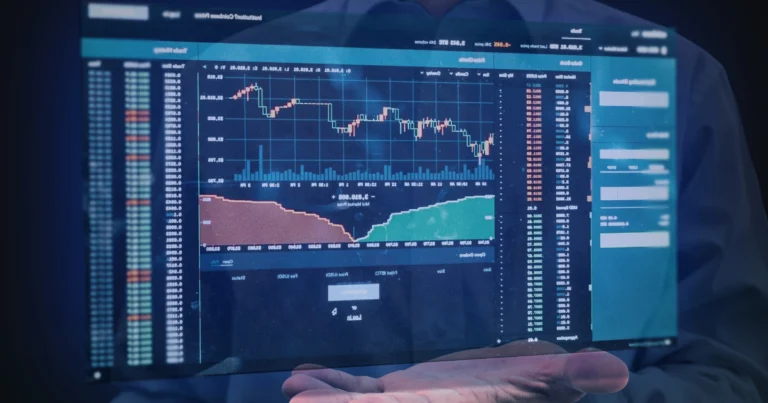Have you ever wondered if your trading strategies are solid or if you’re just coasting on good fortune? Trading is a skill that demands more than luck; it requires discipline, strategy, and continuous self-assessment.
Testing your trading skills is one of the most effective ways to refine your approach, identify weaknesses, and build confidence in your decision-making. In this article, you’ll discover seven simple methods to test your trading skills fast and start your journey toward becoming a more consistent and successful trader.
Mastering the art of trading isn’t just about placing trades—it’s about knowing when and how to act in various market conditions. To achieve this, you need to test your trading skills regularly to ensure your strategies are robust and adaptable. Whether you’re a beginner or a seasoned trader, testing allows you to uncover blind spots, fine-tune your techniques, and gain the confidence needed to thrive in competitive markets. Let’s explore how you can test your trading skills using proven and practical methods.
Table of Contents
Why Testing Your Trading Skills Is Crucial

Trading without testing your skills is like navigating uncharted waters without a map. It’s not just about avoiding costly mistakes—it’s about understanding your strengths, identifying areas for improvement, and ensuring that your strategies work in different market conditions.
Here are three reasons why testing your trading skills is essential:
- Gain Insights Into Performance: Testing helps you understand whether your strategies are effective or need adjustments. This awareness can save you from repeated errors.
- Improve Risk Management: Skill testing allows you to refine your approach to managing risks, ensuring that you’re prepared for market volatility.
- Boost Confidence: Knowing your strategy has been tested successfully gives you the confidence to execute trades without second-guessing.
A well-tested trading strategy is the backbone of any successful trading career.
7 Simple Ways to Test Your Trading Skills

1. Backtesting Your Strategies
What Is Backtesting?
Backtesting is all about taking your trading strategy and running it through past market data to see how it might have worked. It’s like taking a strategy for a test drive before hitting the open road.
How to Backtest Effectively:
- Choose a Reliable Platform: Platforms like MetaTrader 4, TradingView, or NinjaTrader provide robust tools for backtesting.
- Define Your Strategy: Clearly outline your entry and exit points, risk management rules, and position sizes.
- Analyze the Metrics: Pay attention to your profit-to-loss ratio, win rate, and maximum drawdowns to understand your strategy’s effectiveness.
Backtesting is a powerful way to test your trading skills, build confidence in your trading plan, and identify potential weaknesses before trading live
2. Using Demo Accounts
Demo accounts are a trader’s best friend, especially when starting out or testing new strategies. They provide an excellent way to test your trading skills in real-time market conditions without risking actual money.
Benefits of Demo Accounts:
- Risk-free environment to test strategies and tools.
- Real-time feedback on performance, helping you spot flaws in your approach.
- Builds familiarity with the trading platform.
Platforms like eToro, Thinkorswim, and NinjaTrader offer excellent demo account options. Leverage these accounts to sharpen your skills and gain confidence before diving into live trading.
3. Participating in Trading Simulations
Trading simulations replicate real-market scenarios, allowing you to practice trading under various conditions. These simulations are excellent for honing your decision-making skills and preparing for live trading.
Recommended Tools for Simulations:
- Investopedia Simulator: A beginner-friendly tool with virtual money and real-time market data.
- Forex Tester: A robust platform for forex traders.
Simulations also add an element of realism, helping you manage emotions like fear and greed—two of the biggest obstacles to successful trading.
4. Setting Up Paper Trading
Paper trading involves tracking your hypothetical trades manually without using real money. While it lacks the real-time feedback of a demo account, it’s a simple and effective way to test your trading skills, practice discipline, and refine techniques.
Steps for Paper Trading:
- Select a stock, forex pair, or asset to trade.
- Record your entry and exit points, position sizes, and stop-loss levels.
- Monitor how your trades perform over time.
Paper trading is particularly useful for testing strategies in a controlled environment.
5. Analyzing Your Trading Journal
A trading journal is one of the most effective tools for self-assessment. It’s not just about tracking profits and losses—it’s about understanding your behavior, emotions, and decision-making process.
How to Keep a Trading Journal:
- Record Every Trade: Note the entry and exit points, reasons for the trade, and results.
- Identify Patterns: Look for recurring mistakes or emotional triggers that impact your performance.
- Use Tools: Consider platforms like Edgewonk or Trading Journal Spreadsheets for detailed analysis.
By reviewing your journal regularly, you’ll gain valuable insights into your trading habits and areas where you can test your trading skills and improve.
6. Testing Your Risk Management Skills
Effective risk management lies at the heart of successful trading. Even the most reliable strategies can fall apart without the right risk controls in place.
Checklist for Testing Risk Management Skills:
- Are you using stop-loss orders consistently?
- Is your position sizing aligned with your overall risk tolerance?
- Do you have a maximum loss limit per trade?
Risk management is not just about preserving capital—it’s about creating a sustainable trading career and knowing when to test your trading skills to ensure you’re making informed decisions.
7. Joining Trading Competitions
Trading competitions provide an exciting way to test your skills in a real-time environment. Many brokers and platforms host these contests, often with virtual funds and valuable prizes.
Why Join Competitions?
- Experience trading under pressure.
- Compare your performance against other traders.
- Learn new strategies by observing top performers.
Platforms like Binance, ForexCup, and MyFxBook regularly host trading competitions. Use these opportunities to challenge yourself and refine your strategies.
Bonus Tips for Effectively Testing Your Trading Skills

- Consistency Is Key: Test your skills regularly to track your progress over time.
- Seek Feedback: Share your strategies and results with mentors or experienced traders for constructive criticism.
- Test in Different Market Conditions: Ensure your strategies work in volatile, trending, and range-bound markets.
Skill testing is not a one-time activity; it’s an ongoing process that helps you test your trading skills and adapt to changing market dynamics.
Common Pitfalls to Avoid When Testing Trading Skills
Even the best traders make mistakes, but you can avoid common pitfalls with a proactive approach:
- Overconfidence: Avoid assuming a strategy is flawless after a small number of successful trades.
- Ignoring Psychology: Emotional control is as important as technical skills. Don’t overlook its impact.
- Focusing Solely on Profits: Evaluate metrics like drawdowns, risk-reward ratios, and win rates instead of just profit margins.
FAQ
Q1: Why should I test my trading skills before trading live?
Testing allows you to identify weaknesses and refine strategies without risking real money. It’s an essential step for building confidence and avoiding costly mistakes.
Q2: How often should I test my trading skills?
You should test your skills regularly, especially after developing new strategies or when market conditions change. Consistency ensures you stay adaptable.
Q3: What’s the best method for beginners to test trading skills?
Beginners should start with demo accounts and backtesting to test your trading skills. These methods provide a risk-free environment to build foundational skills.
Q4: Can I test trading skills without using software?
Yes, through paper trading or manually tracking hypothetical trades, you can effectively test your trading skills. While less sophisticated, this approach is still effective for strategy refinement.
Conclusion
Testing your trading skills is the bridge between theory and practice. By applying the methods outlined in this article—from backtesting to journaling and risk management—you can build a solid foundation for long-term success. Remember, every successful trader began by testing and refining their skills.
So why wait? Start testing your trading skills today, and take control of your trading journey. With consistency and effort, you’ll be well on your way to achieving your financial goals.







